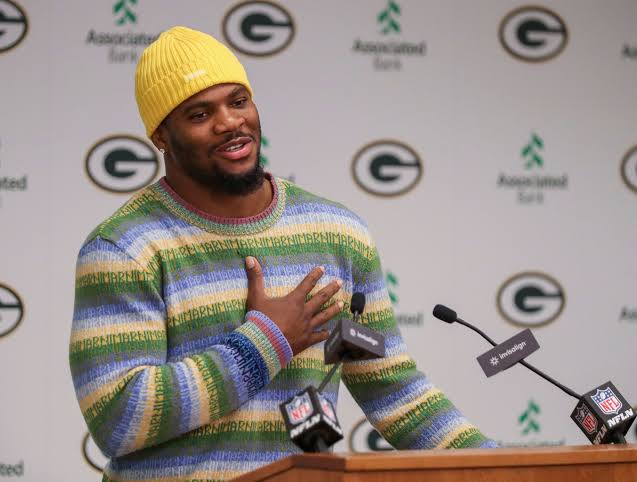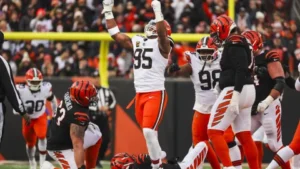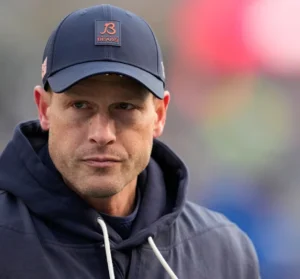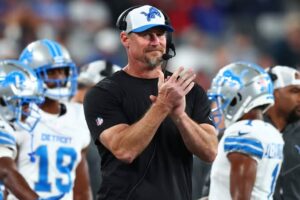
The Green Bay Packers broke character on Thursday by pulling off a blockbuster deal for Dallas Cowboys star pass rusher Micah Parsons. The price was steep — two first-round selections and veteran defensive tackle Kenny Clark — plus a new four-year extension worth $188 million for Parsons.
With Detroit currently the team to beat in the NFC North, Green Bay made it clear they plan to chase them aggressively with this move.
On the other side, Lions GM Brad Holmes has faced ongoing criticism for not doing enough to strengthen the pass rush alongside Aidan Hutchinson. Detroit re-signed Marcus Davenport, drafted an edge defender late, and flirted with Za’Darius Smith for months — but those moves feel underwhelming compared to the Packers’ bold strike. Holmes continues to downplay the idea of Detroit being in a “Super Bowl window,” even as most outside observers — and even head coach Dan Campbell to some extent — see things differently. Every playoff run that falls short brings that window closer to closing.
Beat Writer Sounds Off on Detroit’s Lack of Aggression
Dave Birkett of the Detroit Free Press laid out the sting of the Parsons trade for Lions fans.
“This is exactly the type of all-in gamble Detroit fans have wanted since Hutchinson’s injury last fall. There’s no guarantee it works for Green Bay — just like Detroit’s draft-and-develop method has no guarantees — but it instantly makes the Packers a serious threat in the NFC.”
Birkett admitted the financial hurdles for Detroit. Paying two star pass rushers market-setting money while still facing other major contract decisions would be a tough sell for any front office. Still, he captured what many fans feel.
“If I were a Lions supporter, I’d be frustrated. This team came one step away from the Super Bowl two years ago, and injuries likely cost them another shot last year. They should’ve done more to strengthen their roster this offseason.”
While Holmes deserves credit for building a strong foundation, the lack of aggressive moves stands out when rivals take big swings. Instead of pushing chips to the center of the table, Detroit’s GM has remained cautious — while a division opponent just made the kind of deal that could tilt the balance of power.





